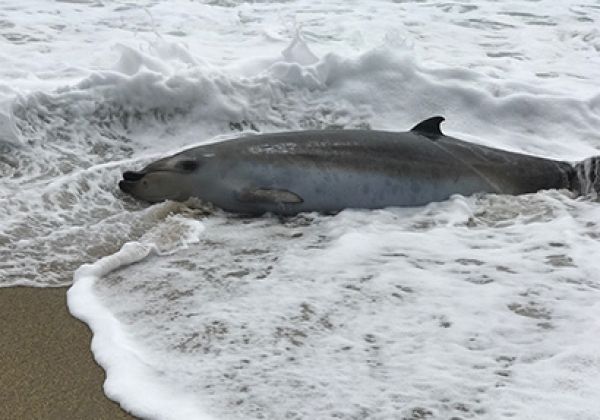Genetic testing has determined that the stranded whale is actually a different species, also very rare, called Hubbs' beaked whale. "What is interesting is that adults of this species look nothing like this whale," said UCSC biologist Robin Dunkin. "It turns out that this was a very young animal, probably less than a year old. Once it reaches sexual maturity, it changes color, grows two teeth, and is much bigger than this whale."
Scientists from UC Santa Cruz's Long Marine Laboratory responded to a whale stranding at Scott Creek Beach near Davenport on Friday, May 31, and discovered that the animal was an extremely rare Perrin's beaked whale.
The stranded whale was alive but badly injured and had to be euthanized on the beach. A post-mortem examination (or "necropsy") was performed over the weekend by scientists from UC Santa Cruz and the California Department of Fish and Wildlife (CDFW).
Read more at University of California - Santa Cruz
Photo Credit: Dorris Welch


